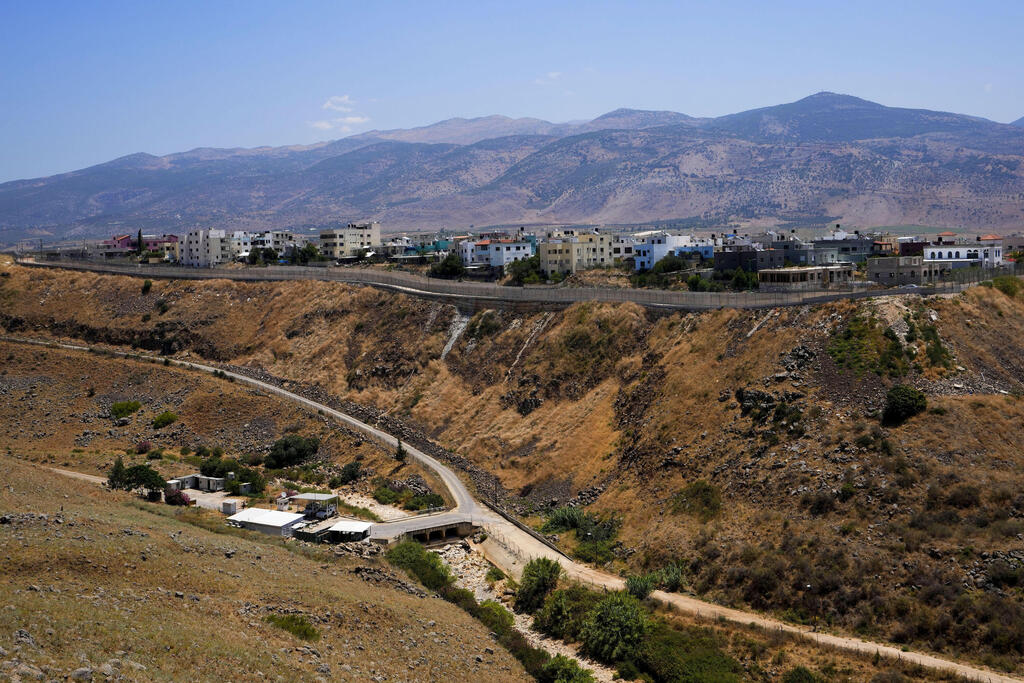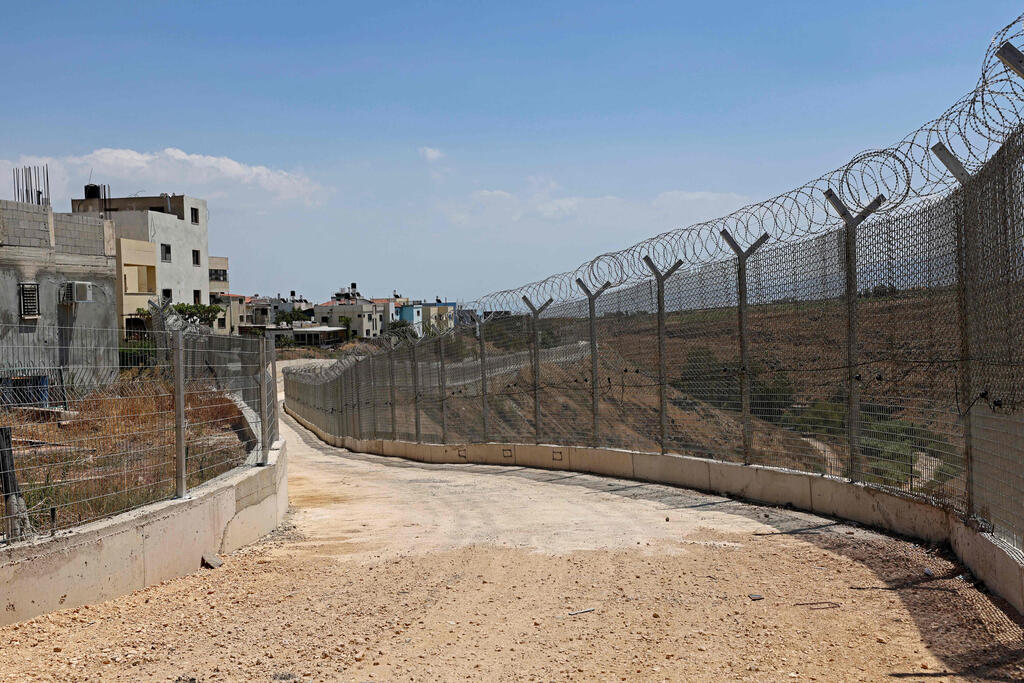Getting your Trinity Audio player ready...
Despite the government’s recommendation the communities close to the border with Lebanon evacuate due to increased tensions following Israel’s war against Hamas, not a single resident of Ghajar, an Israeli-Arab town close to the border with a population of over 3,000 has made the decision to leave their homes.
More stories:
"We’re one family, and we share one fate. The residents don’t want to evacuate," said Bilal Khatib, the Ghajar municipality’s spokesperson.
2 View gallery


Ghajar is an Israeli-Arab town located near the border with Lebanon
(Photo: Hassan Ammar, AP)
According to Khatib, "Everyone stays in their homes, and when they hear a siren, they enter a protected room available in their own houses or in the area. It's dangerous here, and we've reached out to everyone, but we can't force families to leave. We believe in God, and whatever happens, happens."
The entrance to Ghajar, one of the fastest-growing tourism centers along the Lebanon border in the past year, has been closed for two weeks. Access to the village, situated on the Golan Heights, has been restricted to only its residents since Israel’s withdrawal from Lebanon over 20 years ago and until September 2022.
Since then, hundreds of thousands of visitors have come to the settlement, but the escalating security situation at the northern border and the start of the war in the south have led to restricted access once again.
In 2022, the local municipality completed the construction of a new border fence, accompanied by a wall. However, Hezbollah claimed the IDF carried out the work in order to complete the annexation of the Lebanese part of the village.
The terrorist organization has called in recent months for the Lebanese government to take immediate action to “liberate” the village and "return it to its homeland" – and had been responsible for violent incidents on the northern border even before Hamas launched its offensive against Israel two weeks ago.
"No resident left their home here even during the Yom Kippur War in 1967," recounted A., a resident of the village. "I'm a religious person. There is a God, and whatever He gives us is a blessing. We feel saddened by the killing, pain and war crimes the terrorists from Gaza inflicted on Israel."
A. described how residents of Ghajar now rarely leave their homes and only travel to Kiryat Shemona, located nearby, to buy essential supplies. Those who continue working leave the village at dawn and return before nightfall. "Yesterday there were bombings close by, and Hezbollah has fired missiles above the village," he added.




